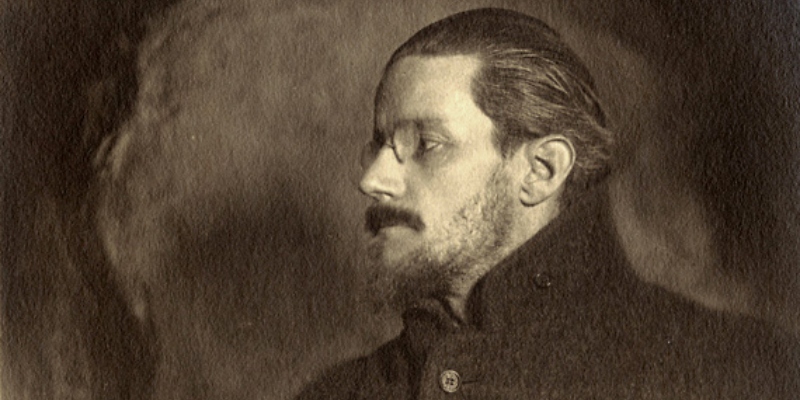
Reading James Joyce’s Finnegans Wake... Without Trying to Decode It
Introducing a New Five-Part Series on the Most Mystifying Book Ever Written
Welcome to Finnegan and Friends, a new five-part series about the most mystifying book ever written: James Joyce’s Finnegans Wake. With a range of guests—including a novelist, an actor, a sleep specialist, a philosopher, and several Joyce scholars—Finnegan and Friends follows tangents inspired by Joyce’s novel of dreamy strangeness. We discover, along the way, that the Wake’s infinite complexity comes from attention to our most simple, elemental experiences (of dreams, of water, of local and familiar language). This show celebrates the wonders of the basic stuff of life.
James Joyce’s Finnegans Wake doesn’t work like other novels. It has lines like, “What clashes here of wills gen wonts, oystrygods gaggin fishy-gods!” In some ways, this makes the book almost impossible to read. H.G. Wells told Joyce, “You have turned your back on common men—on their elementary needs … What is the result? Vast riddles.” The Wake doesn’t have to be difficult, though; you don’t have to read it as a collection of unsolvable riddles. In Finnegan and Friends, we don’t regard the Wake as something to decode completely. Instead, we find in the book a well of inspiration for endless exploration.
When you accept that you can’t perfectly decipher this thing, you set yourself free to notice rather than solve, and you’ll start to notice a lot. You’ll notice, for one thing, that Finnegans Wake deals with basic, shared, elemental experiences—of dreams, of water, of private chitchat. And it does all this in its own dreamy, fluid language. As Samuel Beckett wrote, of Joyce and the Wake, “His writing is not about something. It is that something itself.”
Finnegans Wake also consoles. It’s the book of death giving way to life, of a fall that generates rebirth. The story, as much as it has one, draws connections between figures associated with a fall: the central, disgraced character HCE; Humpty Dumpty; and Finnegan (from the Irish song “Finnegan’s Wake,” about a guy who falls, is presumed dead, then turns out to be fine). There’s nothing total about such falling in this book, no complete catastrophe. The fall leads us into something much weirder. Here’s a sample from the Wake itself:
The fall (bababadalgharaghtakamminarronnkonnbronntonner-ronntuonnthunntrovarrhounawnskawntoohoohoordenenthurnuk!) of a once wallstrait oldparr is retaled early in bed and later on life down through all christian minstrelsy. The great fall of the offwall entailed at such short notice the pftjschute of Finnegan, erse solid man, that the humptyhillhead of humself prumptly sends an unquiring one well to the west in quest of his tumptytumtoes: and their upturnpikepointandplace is at the knock out in the park where oranges have been laid to rust upon the green since devlinsfirst loved livvy.
In collapse and decline we find hints of rebirth to some ancient glory—the return of the ancient Irish heroism of Finn MacCool. (“Hohohoho, Mister Finn, you’re going to be Mister Finnagain!”) So we’re reading a book of sadness that leads to joy, of hazy connections that exist beyond gloom, beyond logic, and sometimes just at the level of sound (between Finnegan and Finn, again), all of which intimates the promise of life that never never makes perfect sense.
Notice, too, that the title of the Wake lacks an apostrophe. You can read the title as an encouraging command, urging all Finnegans, all of us fallen and struggling people, to wake up into free-floating consciousness within our routine, elemental experiences. Episodes of Finnegan and Friends will trace this waking through one elemental experience at a time—of water, of dreams, of language—and each will be accompanied by notes like this one, on Joyce’s novel and on a related, Joycean life adventure.
__________________________________
Subscribe, listen, and enjoy the engaging interviews as we bring you Finnegan and Friends. Episodes will begin running weekly throughout April, and will be available for free on Apple Podcasts, Spotify, Stitcher, PocketCasts, or wherever you listen to podcasts.
The Cosmic Library
The Cosmic Library explores massive books in order to explore everything else. Here, books that can seem overwhelming—books of dreams, infinity, mysteries—turn out to be intensely accessible, offering so many different ways to read them and think with them.



















